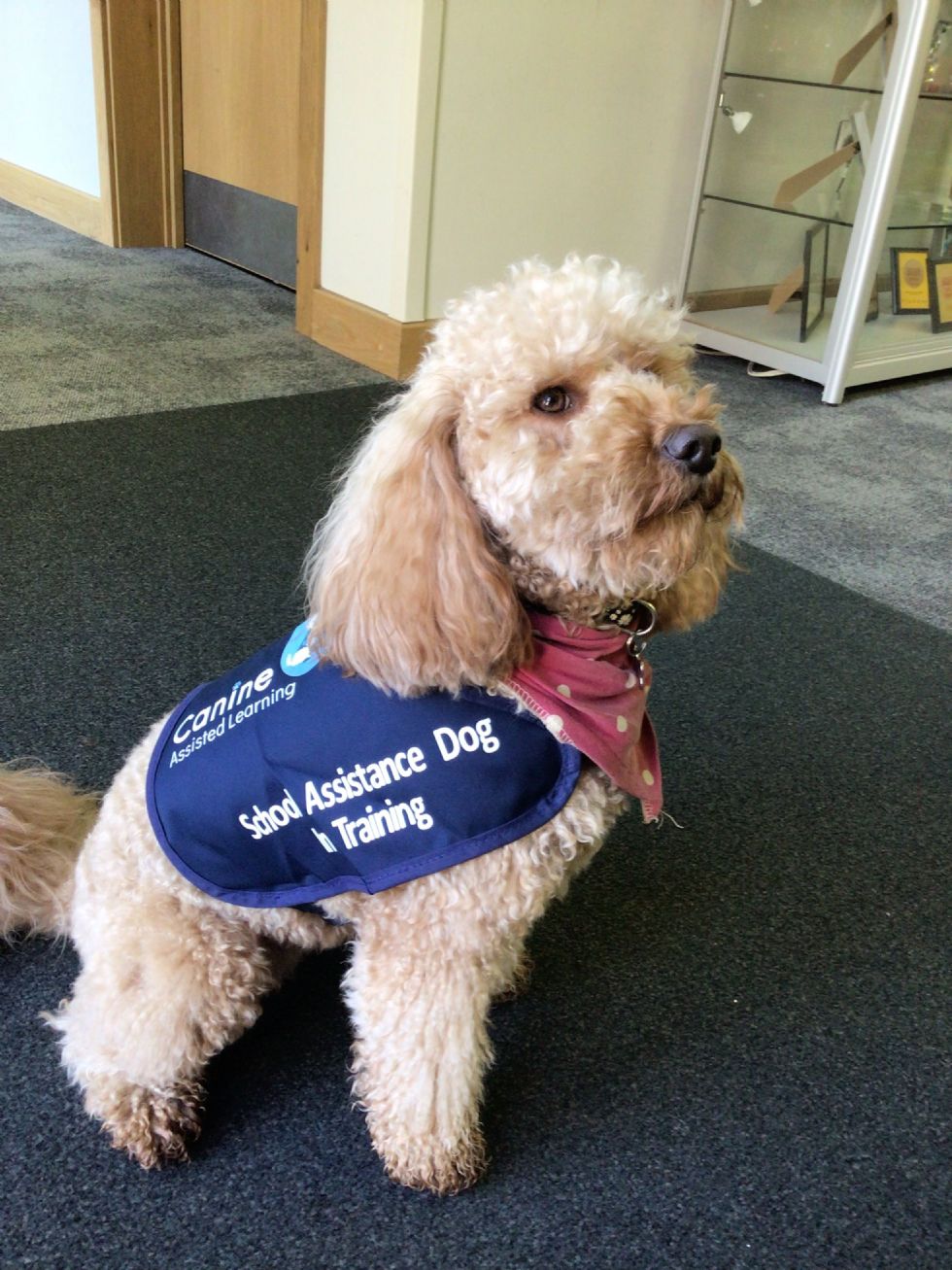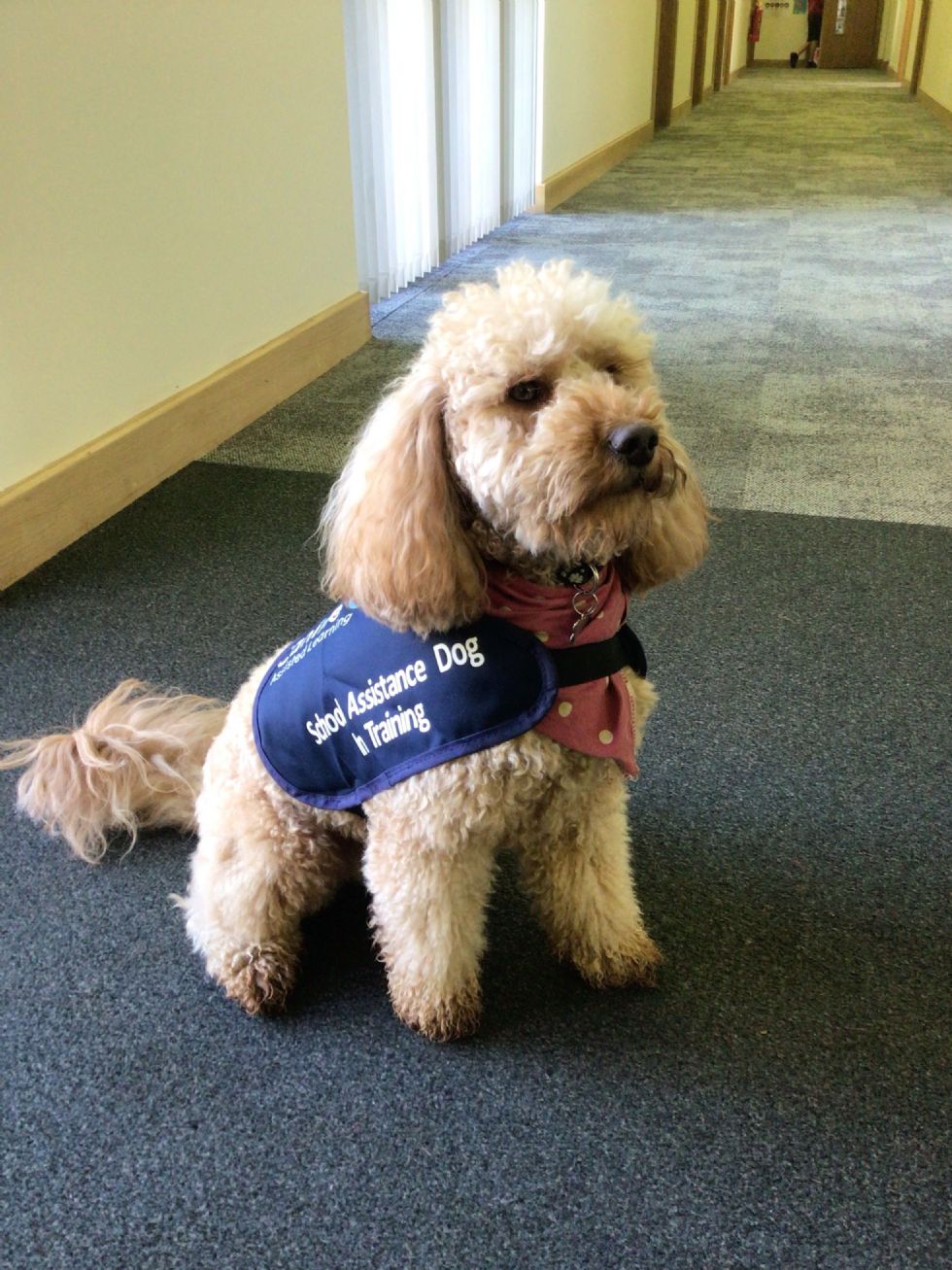Canine Assisted Learning
After seeking views from pupils, staff, parents and governors, our plans to have a school Wellbeing Dog were overwhelmingly supported.
Meet Mabel…
This is Mabel our well-being dog at KCEPS. Mabel was born on 8th April 2021. She loves playing with her toys – her favourites are a ball that looks like Mike Kowalski from Toy Story and a little lion that squeaks😊.
Mabel loves to go for long walks. She enjoys chewing a stick and fetching a ball. Mabel’s favourite thing in the whole wide world is water! She loves to paddle and splash about in the river and sea. She is a very good swimmer.
Mabel has been trained through Canine Assisted Learning (CAL). She has mastered the basic commands of sit, stay, lie down, touch, settle, come and walking to heal.
Whilst at school, it is important Mabel gets her exercise. Just like the children, Mabel loves to use the climbing apparatus as her very own agility course.
Mabel has been trained in line with Wellbeing dog standards.
Before making a decision, we undertook a significant amount of research and are aware of the many benefits to having a school dog, which include:
- a calming effect on pupils
- improved behaviour and concentration, reduced stress and improved self-esteem
- encouraging expression, participation and confidence for all children
- fostering a sense of responsibility
- motivating pupils to think and to learn, as most children have a high level of natural interest in, enthusiasm for and enjoyment of animals
- encouraging respect and thereby improving pupils’ relationships with each other, parents and teachers
- teaching children to nurture and respect life
- helping work undertaken with the most vulnerable children
- helping children build confidence in reading by reading to the dog
- improving attendance
Dogs are increasingly being used in schools with great success and they are now being used in some hospitals, since the emotional health benefits are being seen as vast.
Mabel works with children for a variety of reasons. For example, she will encourage and motivate pupils who find reading tricky by letting them read to her; she will also help pupils who might be upset or worried about something and she will be seen with children who have earned ‘Mabel time’ as a reward for their outstanding work and/or behaviour.


